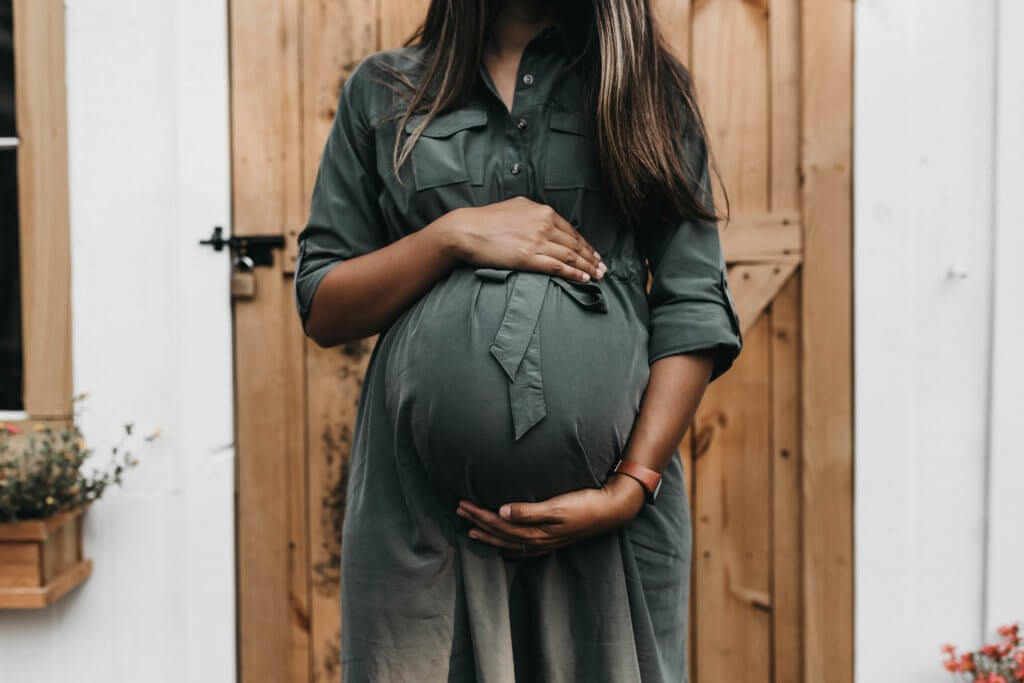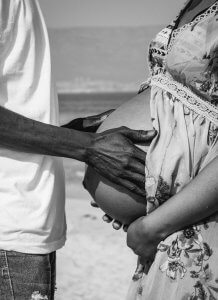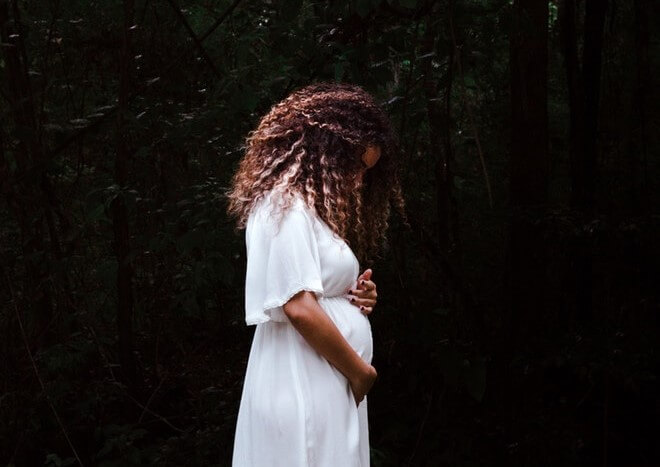You take a deep breath and look at the test. The results say pregnant. You are flooded with joy. You have wanted this for so long. Almost immediately after, you are overwhelmed with fear. You are an African American woman. You know that you are at risk; that chances of death during delivery are 2 to 6 times more likely than a white woman. (Flanders Stephens, 2000). Quickly your joy turns to anxiety and worries for the future. Not only are you worrying about your own mental and physical health, but the wellbeing of your child if you were to leave them in this world without a mother.
As an Italian American woman, I have to acknowledge this as another instance of white privilege I receive due to the color of my skin. There are some medical factors which contribute to these statistics, such as a higher rate of fibroids in African American women. However, medical factors alone do not account for the staggering difference. Many scholars account this difference to a history of systemic racism, unconscious bias of medical professionals, and socioeconomic factors. Even socioeconomic factors do not tell the story. Indeed, a college educated black woman is much more likely to die during birth than a white woman who has not graduated high school. It is unfair, infuriating and frustrating to say the least.
As an African American woman, this is another experience where you are more at risk. Thanks to celebrities like Beyonce and Serena Williams publicly sharing their experiences these horrific statistics are becoming more widely known, and women of color are becoming more educated on the topic and prepared. Here are some ways to reduce risk and empower yourself to feel prepared to protect both yourself and your growing baby moving forward.
Knowledge is power
You have heard that you are a higher risk for hemorrhage, hypertension, and embolism but what does this mean and what can you do about it? A hemorrhage occurs shortly after delivery to days after giving birth and is extensive blood loss. Hypertension is an increase in blood pressure which may lead to other issues such as preeclampsia which can be fatal for mother and baby. An embolism is when amniotic fluids enter the mother’s blood stream. All of these things sound scary and can be confusing and overwhelming. Understanding these risks, and working with a professional that will share with you ways to reduce risk and use the least invasive interventions is critical.
Knowledge is…
Prenatal Care:
One of the greatest risk factors for maternal death is the lack of prenatal care. One of the greatest things you can do to protect yourself and your baby is to contact your local provider and receive the prenatal care needed. Meet with professionals and find someone you can trust. This person should be willing to walk you through all of your questions and concerns. From blood tests to ultrasounds it is important to stay on top of your medical care so that you can be aware of any risk factors, such as high blood pressure during pregnancy. They should be knowledgeable about potential risks and what your options would be. Early detection and treatment can lower your risks substantially. If health insurance is an obstacle, you can check out Planned Parenthood or Blue Cross for low cost or free prenatal care options.
Trust yourself:

Many African American women report feeling not listened to during their pregnancy and birth experience due to the color of their skin. If you feel that the professional you are working with is dismissive, unknowledgeable, or not taking the time to provide you with all the information, find someone new. Every woman giving birth should feel like the most important person in the room. Each and every thought and feeling of yours should be listened to and taken into consideration from your first visit to the delivery room. Get recommendations from friends and family who have had a good birthing experience with a professional they trust. As you meet with professionals to get prenatal care and prepare for birth, trust your gut regarding if you feel heard and …
Consider a midwife or a doula:
A midwife or doula are professionals who are trained in supporting mothers during childbirth. You can discuss your preferences with them beforehand and they can advocate for you when you are unable to communicate for yourself. For example, you would want to discuss your preferences with your midwife about interventions to stop hemorrhaging. African American women also have higher rates of needless sterilization and hysterectomies. At what point would a hysterectomy be acceptable to you to stop your bleeding? What options would you like attempted first? The job of a midwife or doula is to comfort and advocate for you during one of the most life changing experiences of your life.
Prenatal Vitamins:
Lack of proper nutrition and vitamins can lead to complications during birth and put you at greater risk for maternal death. Knowing about and remembering to take prenatal vitamins is important. They contain folic acid, which is an important nutrient that helps your child to develop properly in the womb and reduce risks during delivery.
Healthy Lifestyle:
Maintaining a healthy lifestyle can reduce your risks of pregnancy and delivery complications. You can maintain a healthy lifestyle by eating nutritious foods such as fruits and vegetables. Salmon, eggs, and avocados are also healthy choices which can help your babies developing brain! Light exercises is helpful, even just a nice brisk walk around the block. Refraining from smoking is one of the best things that you can do for yourself and your baby during pregnancy.
Knowledge is key when it comes to preparing yourself for childbirth.

There have been recent efforts in New Jersey to help reduce the rate of maternal death. The medical community still has quite a bit of work to do. The campaign called “Nurture New Jersey” states that over 60 percent of maternal deaths in New Jersey are women of color. This is unacceptable. Furthermore, after generations and generations of maternal deaths in African American communities, women may experience trauma just from becoming pregnant. With generations of African American women experiencing the loss of their loved ones during childbirth, the experience of becoming pregnant can bring up fear and anxiety for the woman and her family.
You can speak with your healthcare professional about your concerns, and together create a plan which helps you to feel comfortable and empowered. If you are experiencing anxiety or trauma symptoms such as scary and intrusive thoughts about childbirth after creating a plan with your GYN, speaking with a mental health professional may be the next step. Maternal mental health is critical.
If you are curious about intergenerational trauma, check out Jessica Pizzo, LCSW’s blog “The Trauma of Your Ancestors Lives on in You: Pregnancy in the African American Community”
Learn more about our Adult Therapy Services
Contact us for a free phone consultation.




2 thoughts on “Maternal Death in the African American Community: Knowledge is Power”
Comments are closed.